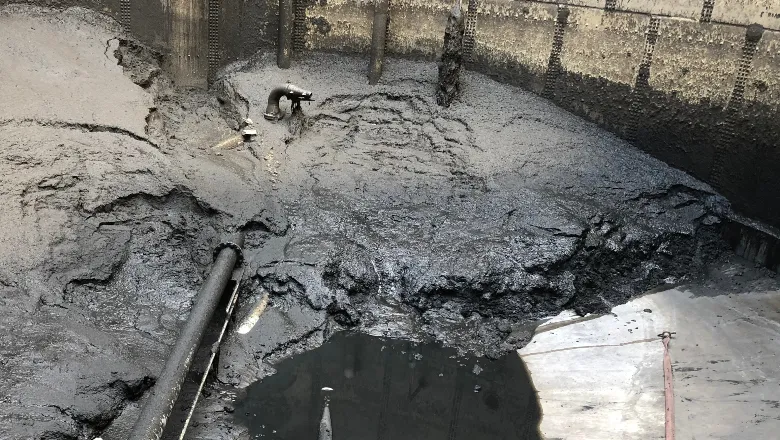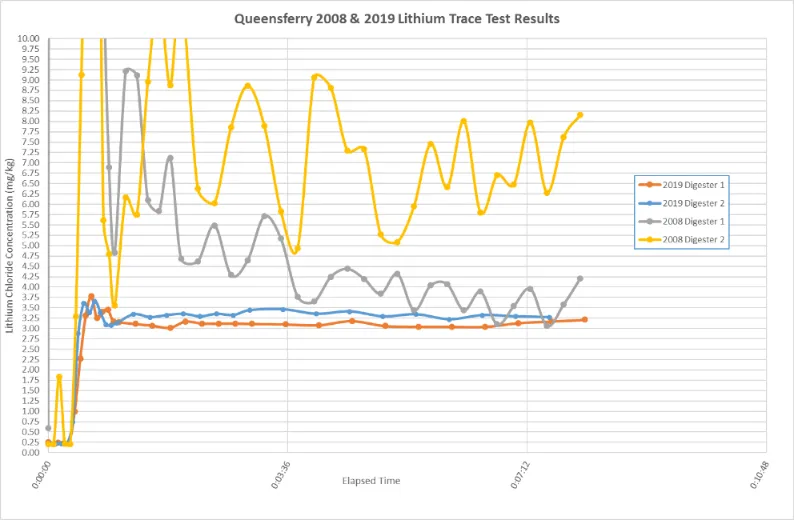Project – Queensferry Lithium Trace Test

Effective mixing is critical to the performance of any AD plant. Inadequate mixing can lead to stratification within the digester with heavy materials settling to the base of the tank and light materials floating to the top. This can lead to short circuiting, poor heating and reduced digester tank capacity leading to a shorter retention time, loss of potential biogas production and process issues.
Lithium trace testing (LTT) provides a non-intrusive, cost effective method of determining the effectiveness of a mixing system, the working capacity of the digester and the hydraulic retention time. Marches Biogas provide a full dosing and sampling LTT service, with the findings presented within a final report.
Marches Biogas has carried out LTT on digesters throughout the UK and Ireland. In 2019, Dwr Cymru Welsh Water, in partnership with Marches Biogas, undertook a LTT on the digesters at Queensferry WWTW. The digester mixing system had recently been redesigned and upgraded by Marches Biogas in 2018. The digesters had been previously lithium trace tested in 2008 therefore the results of the 2019 test could be directly compared. The graph below shows the results of the two tests which tracks the lithium concentration over time. It clearly demonstrates the improvements made to the mixing system with the quick dispersal of the trace and the steady state shown by the flat lines in 2019, compared to the erratic peaks and troughs in 2008.

Lithium trace testing provides a non-intrusive, cost effective method of determining the effectiveness of a mixing system, the working capacity of the digester and the hydraulic retention time.
